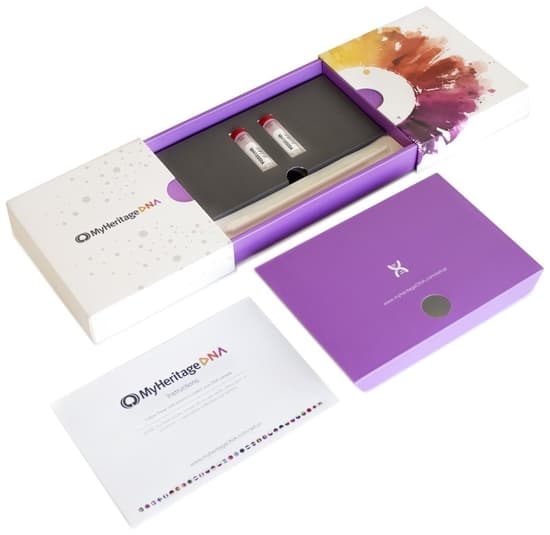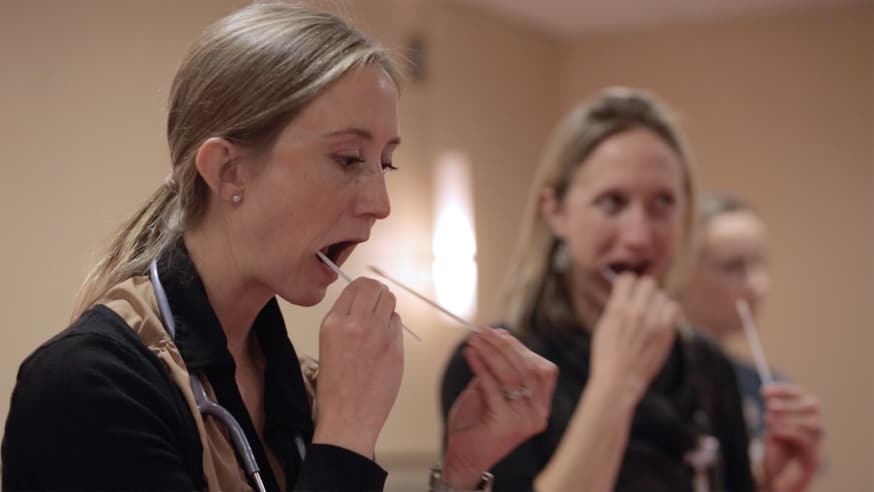Getting the results from an at-home DNA test can be absolutely fascinating — you learn more about your ancestors, where you come from and even your health.
The problem? These tests can be pricey. A 23andMe at-home DNA test will set you back $99 for just the ancestry test — and $199 if you want the ancestry plus health test.
That’s a good chunk of change, but now there’s another option: MyHeritage DNA Kits are on sale for $75 right now on Amazon — not a huge savings from a 23andMe at-home DNA test, but it’s something.
How MyHeritage at-home DNA tests work
Unlike 23andMe, MyHeritage uses a cheek sample swabbed from your cheek (instead of spit). This cuts down on the “ick” factor that spitting into a tube can bring (I know, I did 23andMe a few months ago and spitting into a tube wasn’t fun).
You’ll get your ancestry results from MyHeritage back in about four weeks. The biggest benefit, according to reviews, is that MyHeritage uses data from international users, giving more accurate data that other at-home DNA test companies.

According to the company, your test includes free access to an ethnicity estimate, or a comprehensive breakdown of your DNA composition. “You will discover where your heritage originated from and how much each ethnicity is part of your ancestral origins, and even view the main life events of your direct ancestors on the Ethnicity map,” the company said in a reply to an online review.
You also get DNA Matches, “technology [that] compares data from autosomal DNA tests results and family trees to identify matches between users that share genetic sequences and indicate a family relationship.”
Additional features can be accessed through a premium membership, but doesn’t include the health information that you can get with 23andMe.
Are at-home DNA tests private?
Last fall, New York Sen. Chuck Schumer called for the U.S. Federal Trade Commission to “take a serious look at this relatively new kind of service and ensure that these companies can have clear, fair privacy policies.”
The reason: You’re giving away all of your genetic code away when you send in at-home DNA tests.
“It’s the most valuable thing you own,” Peter Pitts of the Center for Medicine in the Public Interest, a nonprofit advocacy group, told NBC News.
This is especially notable now, given that the suspected Golden State Killer was caught, in part, through family DNA submitted to another at-home DNA test company, GEDMatch.
MyHeritage has a lengthy privacy policy that details what they do with your information. Basically, you give them a “royalty-free, worldwide license” to use DNA samples and results. That sounds a bit scary, but you can order them to destroy your DNA samples.
“All DNA samples are stored at our testing lab and may be kept by us unless or until circumstances require us to destroy the DNA sample, which you can request at any time by contacting us using the contact details below, or it is no longer suitable for testing purposes,” the statement continues.
But can law enforcement get your information to accuse you of crimes? Not necessarily. GEDMatch information is publicly available, meaning that family member allowed it to be added to the database.
“In this case there was not a subpoena or a warrant, they just ran the search as individuals,” Glenn Cohen, a professor at Harvard Law School and the Faculty Director of the Petrie-Flom Center for Health Law Policy, Biotechnology & Bioethics, told NPR.
“But in the case of Ancestry.com, they did require a court-order to do it, so it’s a kind of protection.”
Bottom line: At-home DNA tests are interesting, but be sure you’re clear on privacy before you send those DNA samples.

























